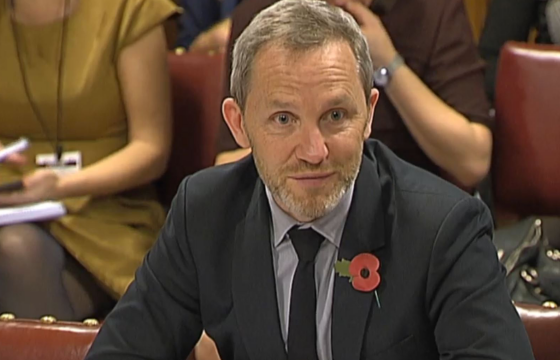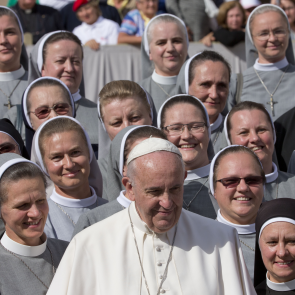Today the Pope’s commission looking at the possibility of allowing female deacons starts its work in Rome.
Its findings will be hotly anticipated, as they could be the start of a process that leads to a much more visible role for women in the Church.
The question for the commission, which consists of six men and six women, led by Archbishop Luis Ladaria, a Spanish Jesuit and secretary of the Vatican’s doctrinal watchdog, is what precisely was the role occupied by women during the early years of the Church.
If the new body, which began its deliberations yesterday and continues with them today, rules that women were ordained as deacons in those days, it will open the possibility of the practice being restored.
The fact is, there’s not much of a debate to be had over this topic. Most theologians accept women did have an “official ministry” as deacons and the makeup of the commission includes strong supporters of restoring the female diaconate, such as the theologian Phyllis Zagano.
What is at stake here is whether the “deaconesses” from biblical times were ordained in the same way as their male counterparts. A Vatican commission back in 2002 said they weren’t and therefore should be seen as distinct - and this might lead to a suggestion that the Pope set up a specific “office for female deacons”, as was suggested three years ago by Archbishop Robert Zollitsch, then-President of the German Bishops’ Conference. This might sidestep female deacons.
What their opponents are probably most worried about is the idea of women wearing roman collars and performing the traditional diaconate role of assisting bishops during the liturgy. On the other hand the Pope has warned against “clericalising the laity” and may see the danger of this happening to women.
Whatever he rules, there is strong evidence to suggest women were deacons in the early Church and they were ordained. In an academic paper earlier this year, the respected Jesuit theologian, Norman Tanner, cites Canon 15 of the Council of Chalcedon AD 451 which talks about the “ordination” of women deacons. He also argues that the female diaconate continued throughout the first millennium of the Church’s history and is part of both Catholic and Orthodox tradition. Incidentally, the ancient, if obscure, orthodox patriarchate in Alexandria (which leads orthodox christianity in Africa) has just set up his very own commission to look into the issue of instituting female deacons.
In his paper Tanner also points out that while women have not been deacons for many centuries, it has never been ruled as an impossibility. “The conclusion is that the Catholic Church has been careful not to exclude women from one of the three grades of the sacrament of orders, namely the diaconate,” the retired professor at Rome’s Gregorian University concludes in Asian Horizons, a theological journal which focusses on women.
The big question, of course, is whether – if the commission does rule that women deacons existed in the past – Francis will be willing to face down an inevitable backlash from conservatives who will argue that any move to create female deacons will cause “confusion” over teaching that only men can be ordained as priests.
Having been bold enough to set up the commission in the first place, it seems likely that Francis is set to bite the bullet and act. There is, at many levels in Rome, a growing sense that women need to be better represented in Church leadership positions. And in a recent discussion with his fellow Jesuits, Francis said the Church needs to take risks. “Today, more than ever, we need courage and prophetic audacity,” he told them during a question and answer session as the order gathered for their 36th General Congregation.
Photo: Members of the Women's Ordination Conference group stage a protest in front of St. Peter's basilica in Rome, in 2011




 Loading ...
Loading ...